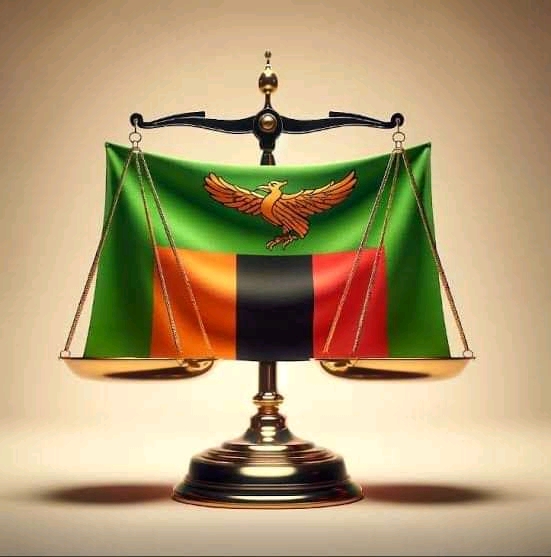The Erosion of Justice: A Constitutional Crisis in Zambia
Good evening!
In a profound betrayal of our democratic ideals, the Constitutional Court of Zambia has unleashed a ruling that shakes the very core of our governance. Former President Edgar Lungu, once regarded as eligible to contest the 2021 elections, has now been declared ineligible for any future presidential bids. This ruling, handed down by Justice Arnold Shilimi, is not merely a legal decision—it is an affront to the principles of justice and equity that every Zambian holds dear.
To truly grasp the gravity of this situation, we must reflect on the principles of fairness that underpin any society striving for justice. Picture a community, vibrant and united, bound by a social contract that dictates how decisions are made and how individuals contribute to the common good. For years, this community flourishes under established guidelines, creating a tapestry of trust woven from shared values and mutual respect.
Suddenly, the governing body overseeing this community, influenced by external forces seeking to manipulate the very fabric of governance, announces a shocking reinterpretation of the rules. They declare that while members participated with integrity in past decisions, they are now deemed ineligible for future engagement based on criteria they crafted amongst themselves. This abrupt shift shatters the fragile trust that binds the community, leaving its members adrift in a tumultuous sea of uncertainty.
This is the very essence of what has transpired within our legal system. The court’s recent ruling implies that while Mr. Lungu was eligible to run in 2021, the very foundation of that eligibility has now been deemed unstable. How can a system that shifts its interpretations so drastically be trusted? This inconsistency creates a chilling effect on our democracy, where the rules of engagement can be altered at will, leaving candidates and citizens alike in a state of uncertainty.
Justice Shilimi’s assertion that previous rulings were reached per incuriam—without due regard to the law—strikes at the heart of our judicial integrity. If the court can so easily vacate its own previous decisions, what does this portend for the rule of law in Zambia? It raises profound concerns about the coherence and stability of our constitutional framework. Our democratic rights cannot be left to the whims of a select few judges, interpreting the law in ways that conveniently serve their agenda.
So, I ask—how do these judges find rest at night after delivering such a whimsical decision? How do they look one another in the eye, knowing they have compromised the very foundations of our democracy? Do they have children and grandchildren they love and cherish? Is this the Zambia they wish to hand down to future generations?
What will they tell their children about the choices they made? Will they be proud to explain that they were part of a system that allowed the manipulation of the very rules that govern our society? Can they look their families in the eye and say they stood up for justice, or will they have to admit that they bowed to external pressures, trading integrity for convenience? How will posterity judge them? The weight of history rests heavily on their shoulders, and their actions today will echo in the hearts and minds of generations to come.
This ruling is not merely a setback for Edgar Lungu; it sets a perilous precedent for all future leaders. It sends a chilling message—the rules are mutable, eligibility is malleable, and political landscapes can shift at will. Our democracy cannot be constructed on such shaky ground; it must stand resolute on principles of fairness, consistency, and transparency.
As Zambians, we must demand a legal system that upholds justice and protects our democratic rights. We must call for clarity in our laws and accountability in our judiciary. The integrity of our electoral process depends on it. Let us not allow this travesty to undermine the very essence of our democracy. It is time to stand up for a system that respects the rule of law, ensuring that all citizens can participate in the political process without fear of arbitrary exclusion.
We owe it to ourselves and to future generations to safeguard our democracy from such injustices. Let us raise our voices and demand a return to a principled and fair judicial system that truly reflects the will of the people. The time for action is now.
The Erosion of Justice: A Constitutional Crisis in Zambia
